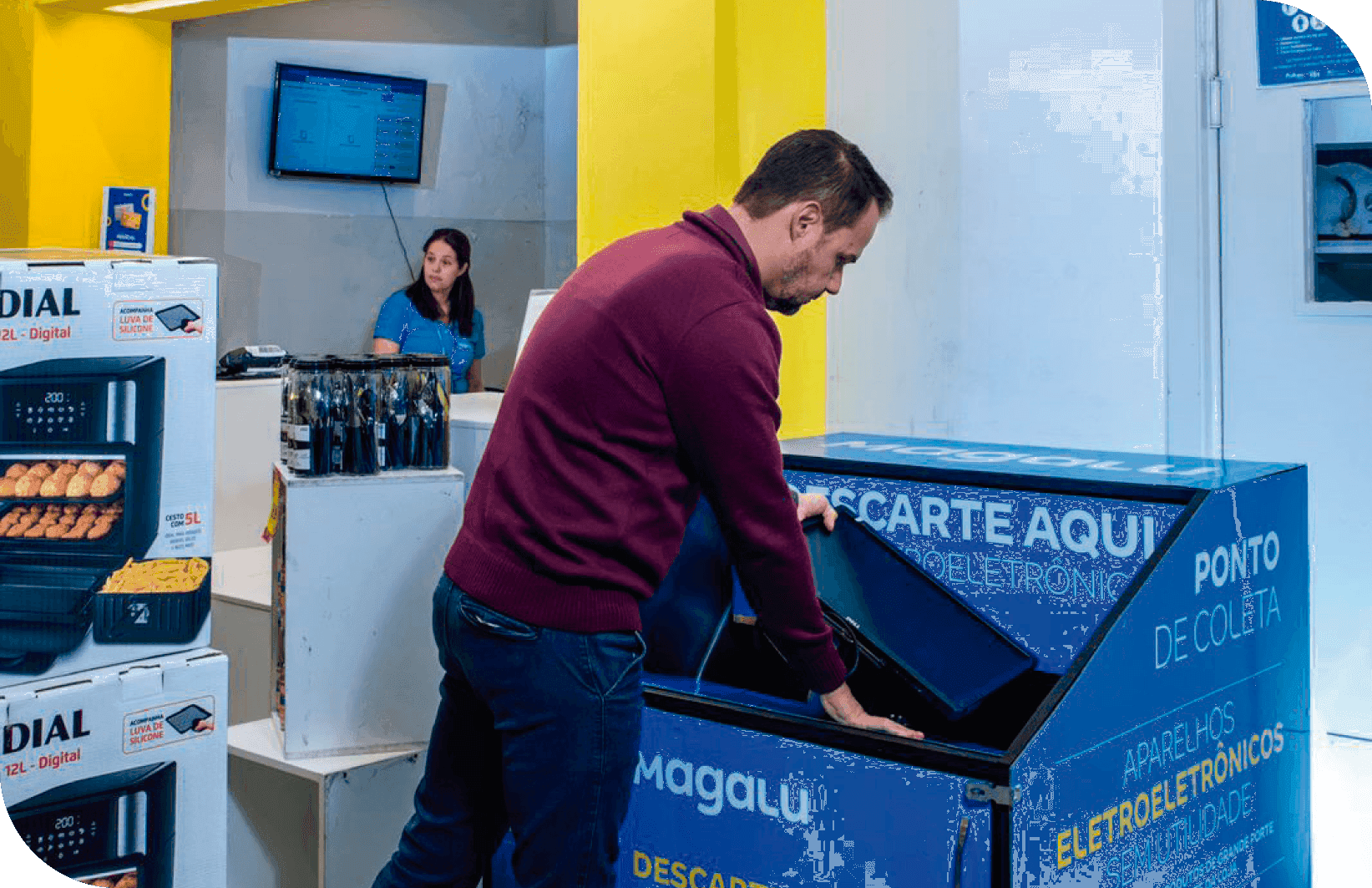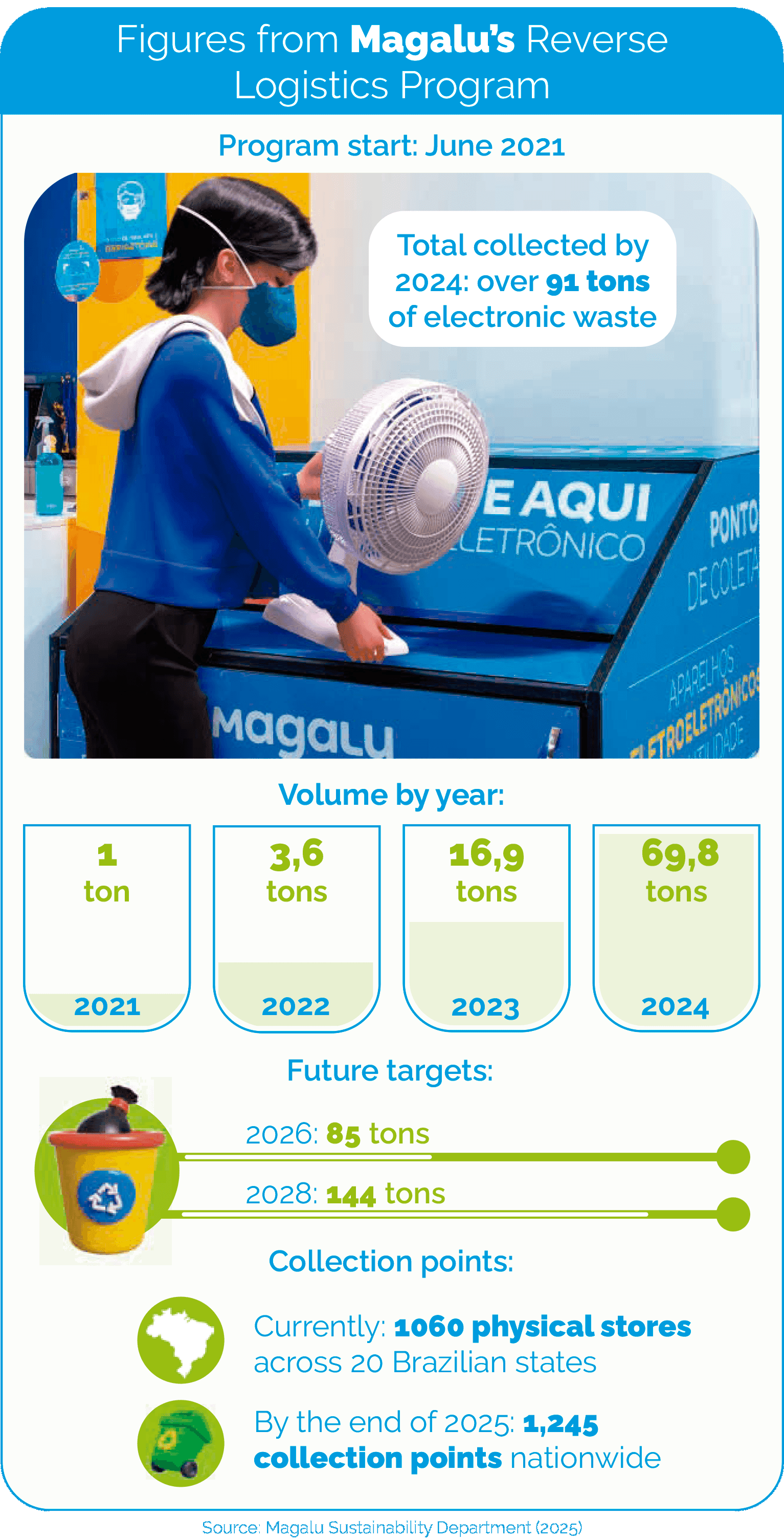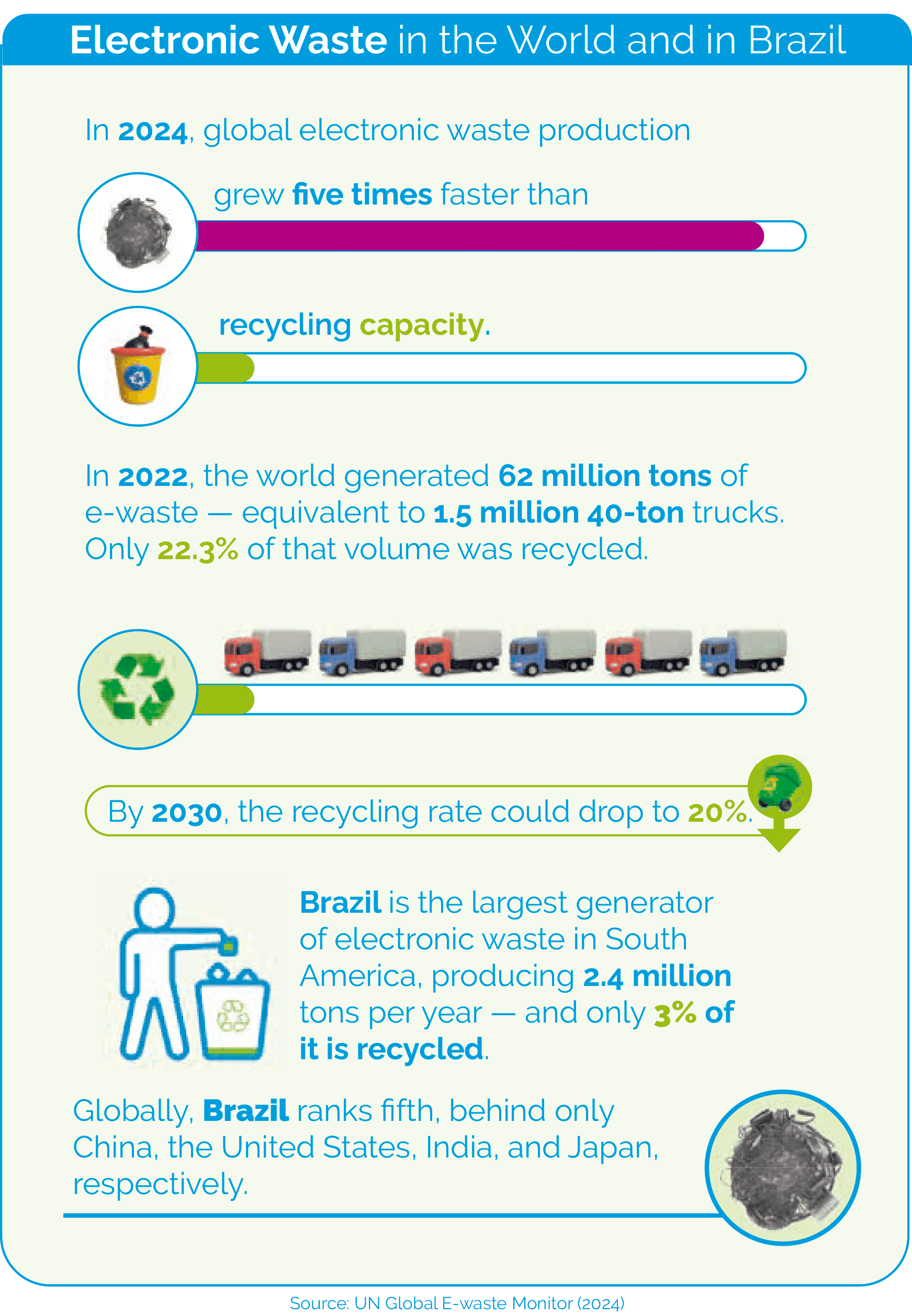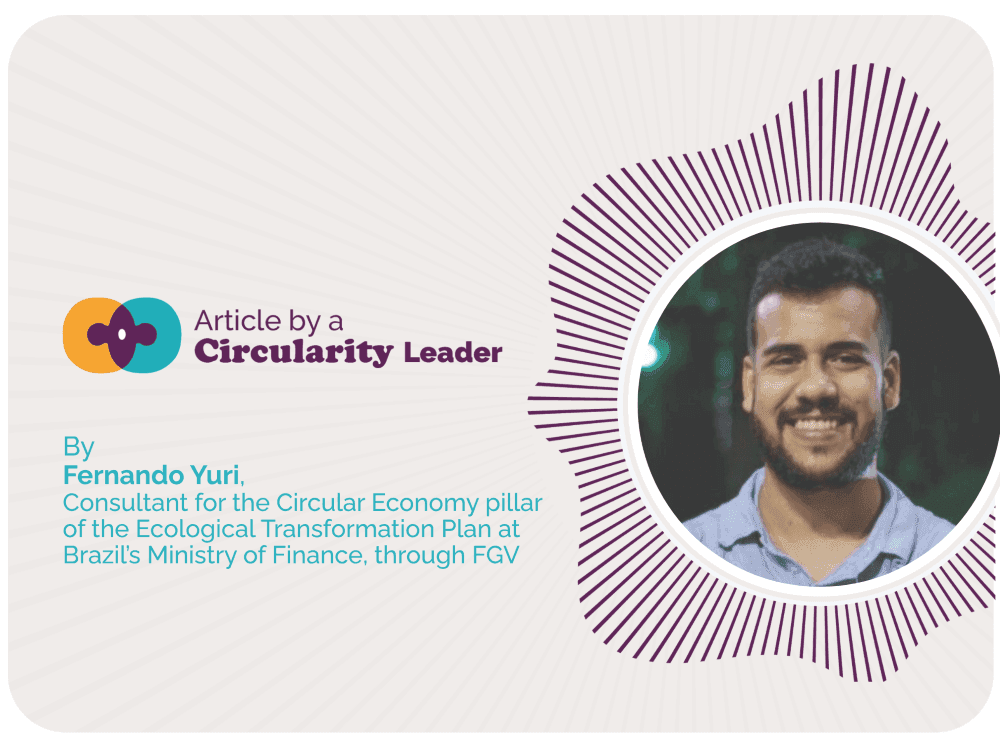
17/07/2025
From consumption to consciousness: how can the Circular Economy transform e-waste recycling in Brazil?
By Arlene Carvalho, from Circular Movement
Did you know that broken electronic device sitting at home is part of a global challenge we can all help solve?
According to the United Nations (UN), in 2024 alone, the production of electronic waste grew five times faster than the world’s capacity to recycle it. This number sheds light on a reality that often goes unseen: we are generating electronic waste at an increasingly fast pace - usually without knowing how to properly dispose of it. Still according to the UN, in 2022, the world produced 62 million tons of this type of material, but only 22.3% was recycled. Brazil plays a key role in this scenario: it is the largest generator of WEEE (Waste Electrical and Electronic Equipment) in South America, producing nearly 2.5 million tons per year—with less than 3% of that being recycled. Globally, Brazil ranks fifth, behind China, the United States, India, and Japan.
It’s worth highlighting that “electronic devices” refers to equipment that is both electrical and electronic - such as televisions. This type of waste, also called e-waste, is driven by multiple factors: the constant pursuit of new technology, planned obsolescence, and a lack of recycling, repair, and reuse culture. It’s a pressing problem, but one that already has practical solutions—such as the reverse logistics program for electronic devices and appliances led by Magazine Luiza (Magalu), in partnership with the Brazilian Association for the Recycling of Electronics and Appliances (ABREE).
What is the program?
Launched in June 2021, Magalu’s reverse logistics program gives the community the opportunity to properly dispose of various types of electronic equipment. All collected materials are sent to companies specialized in reverse manufacturing and recycling, ensuring proper processing of all components.
Devices of all sizes are accepted—from earbuds and hair dryers to refrigerators and televisions. Currently, the program operates in 20 Brazilian states, with 1,060 Magalu stores serving as drop-off points. Over the past four years, more than 90 tons of electronic waste have been collected. All materials are delivered to ABREE, which oversees collection and proper final destination.
Natália Proença, Magalu’s sustainability coordinator, explains that the initiative was created to comply with Brazil’s National Solid Waste Policy (PNRS)—established by law in 2010, which defines shared responsibility between consumers, manufacturers, distributors, and retailers. However, it soon became a key part of the company’s environmental strategy.
“At first, the program was created to meet the legal requirements of the PNRS, but it quickly became a responsibility that Magalu took on. As the largest seller of electronics in Brazil, the company realized it should also be the main driver of collection. The recycling itself is done by ABREE-certified recyclers, but our role is to collect and raise awareness among our customers—showing them that the products we sell have a correct disposal path.”
Robson Esteves, President of ABREE, explains that programs like Magalu’s are essential to support Brazil’s transition to a Circular Economy.
“When large retailers like Magalu commit to this cause and offer accessible collection points, they directly help change the culture of disposal in the country. These kinds of initiatives demonstrate that product life cycle responsibility must be shared. It’s this type of coordination that enables reverse logistics to scale, creates real impact, and changes the way society deals with electronic and appliance waste.”
Esteves also emphasizes that this kind of initiative is crucial because Brazil still faces serious challenges in recycling electronic waste. One of the main obstacles, he says, is the population’s lack of knowledge about how and where to dispose of products properly—which often results in informal or inappropriate disposal. That’s why ABREE works to overcome these challenges by coordinating recyclers to ensure the effectiveness of the reverse logistics system.
“Partnerships with retailers help reinforce public awareness about the importance of responsible disposal. As a result, the amount of collected waste tends to grow steadily, contributing not only to PNRS goals but also to reducing the environmental impact caused by improper disposal.”

There is no cost for people to drop off electronic waste at collection points. When store bins are full, ABREE is notified and sends a team to pick up the materials and forward them to certified recycling partners. Marina Provetti, Senior Sustainability Analyst at Magalu, highlights that the company’s role has gone beyond simply receiving materials.
“Over time, we realized that our role is to show consumers that they are both the starting and ending point. They make the purchase, but they also need to return the product. And here, they have a place to do that. Our commitment also includes environmental education—helping customers understand their role in the Circular Economy.”
Since the launch of the reverse logistics program, the volume of e-waste collected by Magalu has grown significantly. In 2021, 1 ton of material was collected. The following year, this number jumped to 3.6 tons, reaching 16.9 tons in 2023. In 2024, the program hit a new record with 69.8 tons collected - growth that reflects consumer demand, the strength of the initiative, and increased engagement with responsible disposal.
Proença notes that in 2024, school outreach campaigns and a drive-thru collection event in Franca, São Paulo, were responsible for around 39 tons of waste—more than half of the total collected that year. For 2025, another campaign is planned—this time in North São Paulo schools.
“Magalu is a major service hub. Here, you can do a lot: shop, dispose of waste, pay your bills, and more. So we thought—if we want to be the country’s biggest e-waste collector, why not also offer convenience to our customers? This also helps drive sales, for example,” explains the coordinator.
Successful partnerships
Jacilene Souza has been with Magalu for 17 years and, until recently, was the commercial manager of a store in Cachoeirinha, São Paulo. That location was one of the top-performing stores in terms of e-waste collection. She says the program even helps boost sales.
“Our store was inside a hypermarket, which made it easier for passersby to learn about the collection bin. We’ve had cases where a customer said they weren’t planning to buy anything because they didn’t know what to do with their old device—and after learning they could drop it off at the store, they changed their minds,” she says.
She adds that the main success factor was team engagement and effective communication that made customers feel comfortable—especially since the service is free and accepts large items, like TVs, even if they don’t fit inside the collection bin.
Now working at a store in Osasco, also in São Paulo, Souza notes that engaging the public there presents different challenges. Still, she hopes to replicate the success and continue contributing to the company’s Circular Economy efforts.
“We see that this program isn’t just about proper disposal—it’s also about shared responsibility and creating opportunities for cooperatives and green jobs through recycling. I’m proud to work for a company that cares about sustainability and goes beyond product sales to make a social impact,” she adds.

What’s next?
Magalu’s electronics recycling program is now aiming even higher. By the end of this year, the initiative will expand to all of the retailer’s stores in Brazil, growing from 1,060 collection points in 2024 to 1,245 locations. This expansion is aligned with commitments made to the International Finance Corporation (IFC)—the World Bank’s private sector arm—which provided US$130 million in financing to Magalu this year. The goal is also to unify the program’s communication across all units.
In 2024, Magalu collected around 70 tons of electronic waste through the reverse logistics program. The goal is to reach 85 tons by 2026—a 20% increase—and double that amount by 2028, hitting 144 tons. Proença says the company has an even bolder aspiration: to collect 1,000 tons of e-waste by 2030. Beyond reverse logistics, Magalu has also committed to other sustainability goals, such as improving its climate risk matrix and reducing water consumption in its facilities.
For Provetti, the program’s biggest lesson has been believing in the company’s power to influence change.
“We had no idea how connected the Magalu brand is to local communities. We’re present in very small and peripheral cities, which expands our reach and gives us the opportunity to change the e-waste scenario in Brazil. We could’ve been comfortable with the number of bins—we’ve been legally compliant for a while—but we have the potential to take this to the next level,” she concludes.
With ambitious goals, a strong territorial presence, and growing engagement from employees and customers, Magalu’s reverse logistics program stands out as a practical example of shared responsibility and sustainable innovation in retail.
By taking on a real leadership role in the Circular Economy, the company - an ally of Circular Movement - proves that sustainability and socio-environmental impact can, and must, go hand in hand, driving structural change in how we consume, dispose of, and relate to the planet’s resources.
Where to dispose?
Want to get rid of old electronics? Click here to find the nearest drop-off point!
Magalu and Circular Movement
The partnership between Magalu and Circular Movementr began during Magalu’s 2025 Strategic Positioning event. Through a fun and educational experience, the two organizations engaged leaders and employees in an interactive journey that connected information, environmental awareness, and circular practices—reinforcing Magalu’s commitment to proper disposal of electronic devices. Click here to see the outcome of this action!
*This text was automatically translated with the help of artificial intelligence and reviewed. Still, there may be slight differences compared to the original version in Portuguese.

